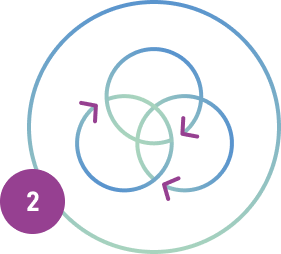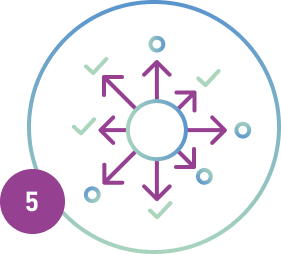The project
The EU-funded GenderSAFE project promotes zero tolerance for gender-based violence in the European Research Area and supports research and higher education institutions in establishing safe, inclusive and respectful environments by setting up comprehensive policies.
Gender-based violence is a persistent problem in higher education and research institutions across the European Research Area, with severe consequences at the individual, institutional and societal levels. The UniSAFE project has provided strong evidence of its prevalence and consequences across European higher education and research institutions and countries. Nearly 62% of the 42,000 respondents of the project’s survey disclosed having experienced at least one form of gender-based violence in their place of work or study (Lipinsky et al. 2022a; Humbert et al. 2022). However, only 7% of students and 23% of staff reported such incidents experienced in their institution, mainly because they did not consider the behaviour serious enough to report, did not recognise the behaviour as violence at the time of the incident or lacked trust in institutions’ ability to handle cases of gender-based violence (Lipinsky et al. 2022b).
In recent years, policy attention to gender-based violence in higher education and research has grown at the EU level, as well as at the level of responsible national authorities and research performing organisations. Despite advances in policy adoption, institutions are however failing in implementation, very little is in place to monitor and evaluate existing policies, and there is a lack of understanding of what constitutes gender-based violence and how to proceed when something happens (UniSAFE Policy Brief 2).
GenderSAFE’s objectives & activities
Until March 2027, the project will support research and higher education institutions in establishing safe, inclusive, and respectful environments by setting up comprehensive policies to effectively counteract gender-based violence.

Strengthen zero-tolerance policies
We aim to create a unified policy approach in the EU by incorporating the latest theoretical insights, focusing on power dynamics, intersectionality, mobility, and precarity.

Support higher education and research institutions
in improving and implementing existing policies
We are gathering stakeholders from various contexts to co-design and share zero-tolerance policies on gender-based violence, fostering mutual learning and support.

Build institutional capacities
We are training dedicated staff and a pool of trainers to help organisations develop and implement effective policies against gender-based violence.

Monitor policies at national and institutional levels
We will develop tools to gather and monitor comprehensive data on how zero-tolerance policies are adopted and implemented across the EU, creating a valuable resource for future efforts.

Raise awareness and advocate
for policies with zero tolerance to gender-based violence.
